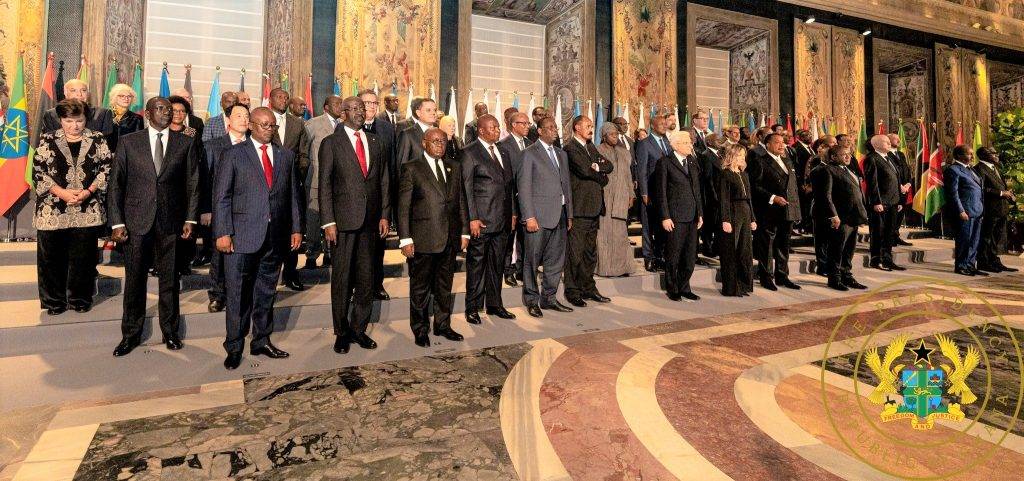


Mr. Gordon Brown, former Prime Minister of the United Kingdom (UK), has strongly endorsed Africa’s bold push to reshape global health governance, backing the Accra Compact as a vital blueprint for building equitable, resilient, and locally led health systems across the continent.
Mr. Brown praised African leaders for championing a transformative health agenda that prioritised health sovereignty, promotes equity, and puts local ownership at the centre of healthcare reform.
The former UK Prime Minister, in a virtual address to the Africa Health Sovereignty Summit held in Accra, hailed the summit as a turning point in global health diplomacy and called on world leaders to embrace a reimagined governance architecture that reflects the “rising aspirations of the Global South.”
“I applaud President Mahama and all African Heads of State for leading this initiative,” he said.
He further stated, “We need a new global order that meets the ambitions of the South, engages all parts of the world as partners, and ensures a sustainable and secure future. Health can and must be the cutting edge of that transformation.”
His remarks come as African leaders, policymakers, and global health advocates gathered in Accra to endorse The Accra Initiative and adopt the Accra Compact – a continent-driven framework that lays out core principles, reforms, and a roadmap for achieving health sovereignty and inclusive global governance.
The former UK leader, who has become a global advocate for health equity and international cooperation, warned that the current global health system, shaped by outdated rules and power dynamics, had failed to deliver resilient and self-reliant systems in many lower-income nations.
He praised African leaders for rejecting dependency models in favour of country-led transition plans and sustainable, investment-driven health systems.
“Even out of a setback, we can shape a better future,” Mr Brown stated.
Mr Brown said, “I support the call for global health to be driven not by outsiders managing delivery and policy, but by local providers running systems tailored to their people’s needs. Health must be run by the people, for the people.”
He backed the Summit’s call for a shift away from aid-centric approaches and towards full domestic ownership, supported by strategic partnerships, innovative financing mechanisms, and regional cooperation.
Mr Brown urged high-income countries to support this transition, suggesting models such as tax-based revenue streams and international guarantees to complement domestic efforts.
In particular, he cited the UK’s taxation policy, 80 per cent on tobacco and 70 per cent on alcohol, as examples of how governments can generate public revenue while promoting healthier societies.
He, therefore, encouraged African nations to adopt similar approaches to fund their health systems sustainably.
The Accra Compact sets out shared benchmarks and a bold political vision for transforming global health governance.
It includes the formation of a Presidential High-Level Panel to design new frameworks for coordination, accountability, and equitable financing, aligned with national priorities.
It also introduces the SUSTAIN Initiative, which aims to strengthen domestic health systems through local resource mobilisation, private sector investment, and philanthropic partnerships.
Mr Gordon Brown described the Compact as “a pioneering move” that challenges the current status quo and affirms Africa’s capacity to lead in health diplomacy and systems transformation.
“Africa is showing the world that it is not just responding to crises, it is shaping solutions,” he said, and that “this Compact is not only timely; it is visionary.”
President John Dramani Mahama, who convened the Summit and has been vocal in calling for Africa to redefine its role in global health governance, called for a fundamental shift in global health governance, declaring that Africa must no longer be the patient but rather the architect of its own health destiny.
According to the President the time had come to replace outdated, donor-driven models with resilient, locally owned health systems that reflect Africa’s priorities, innovations, and voice.
He said, “We are not gathered here by chance. We are here by conviction, a refusal to accept the limits imposed by an outdated global health order.”
President Mahama announced two major commitments: the creation of a Presidential High-Level Task Force on global health governance and the launch of the SUSTAIN Initiative, aimed at scaling up sovereign health transitions through local investments, diaspora engagement, and cross-border innovation.
Calling on global partners to co-create rather than control, Mahama emphasized that Africa’s healing was not a plea but a “rallying cry for sovereignty.”
He urged finance ministers to treat health as a capital investment and challenged economists to recognize health as a multiplier of national wealth.
Source: GNA
The post Gordon Brown backs Africa-led health governance reforms at Accra Summit appeared first on Ghana Business News.
Read Full Story









Facebook
Twitter
Pinterest
Instagram
Google+
YouTube
LinkedIn
RSS